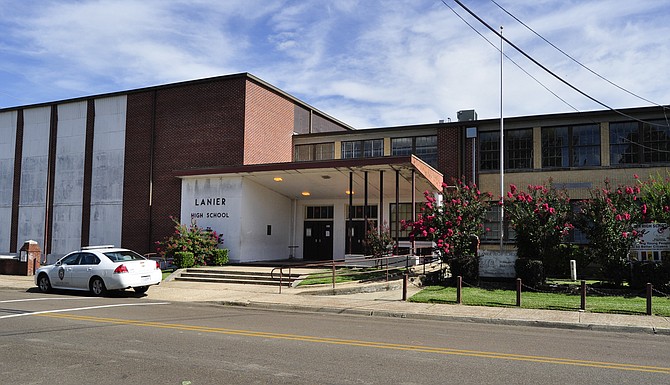By funding the School Recognition Program first—before fully funding the Mississippi Adequate Education Program, which funds teacher salaries in all schools or adds more dollars to "failing districts"—lawmakers are making a bad choice. They prefer to prioritize the state's successful, wealthy and well-performing school districts before helping those that need the most financial support. Trip Burns/File Photo
Legislative Republicans gave themselves pats on the back this session for funding the School Recognition Program, which rewards teachers primarily in "A" and "B" schools around the state with salary supplements. The program totals more than $20 million in funds from the Mississippi Department of Education's budget.
The program caused an outcry among lawmakers in districts with mainly "C," "D" or "F" schools who pointed out that the program only benefits schools with the most resources. In a shallow attempt to address equity, the program also rewards any school that improved a letter grade. The immediate problem, of course, is that few schools improved a grade between 2015 and 2016 because MDE upped its testing standards during that time. In fact, an analysis from the JFP found that many more schools actually dropped a letter grade.
The long-term problem of the School Recognition Program is its complete disregard of equitable education funding. Even though state law says lawmakers have the "intent" to go back and consider a salary supplement for teachers in "C," "D" and "F" schools, the damage is done. The state's failing school districts are all majority African American. The districts suffering the most from teacher shortages are also African American, poor and rural. A 2017 study of Mississippi's teacher shortages found that "districts with a high percentage of black students, districts located in the Yazoo-Mississippi River Delta Region, and districts that generate less money locally for education are more likely to have a teacher shortage."
By funding the School Recognition Program first—before fully funding the Mississippi Adequate Education Program, which funds teacher salaries in all schools or adds more dollars to "failing districts"—lawmakers are making a bad choice. They prefer to prioritize the state's successful, wealthy and well-performing school districts before helping those that need the most financial support.
It also reeks of race bias. The top 10 school districts in the state in 2016 have at least 51-percent white populations. They have strong local tax bases, where communities willingly levy additional taxes to improve their schools. Clinton is able to levy more tax dollars locally than a place like Jackson, for instance, and it's reflected in their grades. Clinton Public School District scored an "A" grade in 2016, while Jackson Public Schools dipped to an "F," forcing a full department audit.
Similarly, small Delta districts, with few local industries to support increasing taxes, struggle to pay for improvements. The Legislature needs to recognize this disparity and financially support the schools and districts that have access to less resources. That is an equity and a fairness issue. All teachers deserve a salary supplement—not a select few.
More like this story
More stories by this author
- EDITORIAL: Gov. Reeves Needs to Take ‘Essential’ Seriously for COVID-19 Social Distancing
- EDITORIAL: City Needs to Name Officers Who Shot Citizens Without Delay
- EDITORIAL: Free Press Is Not Here to Comfort the Powerful; We're Here for Truth
- EDITORIAL: Dear Mississippi Politicians, Criminal Justice Reform Is More Than Rhetoric
- EDITORIAL: Transparency in Officer Shootings Needs to Improve, Not Worsen



Comments
Use the comment form below to begin a discussion about this content.
comments powered by Disqus